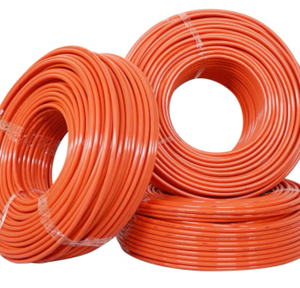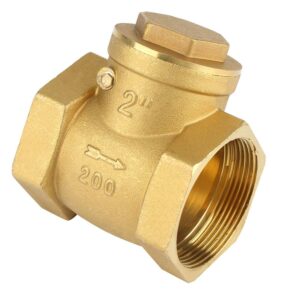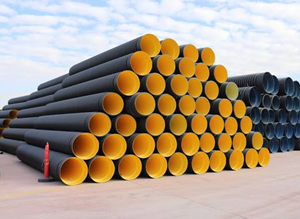Description
Key Features
- Outstanding Chemical Resistance:
- PTFE is virtually inert to most chemicals, making it ideal for transporting aggressive acids, bases, and solvents.
- Wide Temperature Range:
- Operates effectively between -200°C to 260°C, suitable for both cryogenic and high-temperature applications.
- Low Friction Coefficient:
- Provides one of the smoothest surfaces, reducing pressure drops and preventing material build-up.
- Non-Stick Surface:
- Ensures that substances do not adhere to the pipe walls, maintaining cleanliness and flow efficiency.
- High Purity:
- Non-reactive and non-contaminating, making it suitable for pharmaceutical, food, and semiconductor industries.
- UV and Weather Resistant:
- Performs reliably under prolonged exposure to sunlight and harsh environmental conditions.
- Non-Flammable:
- PTFE has excellent fire resistance and self-extinguishing properties.
- Electrical Insulation:
- Acts as an excellent dielectric material, suitable for applications involving electrical insulation.
Applications
- Chemical Processing:
- Used for transporting aggressive chemicals, acids, and solvents in chemical plants.
- Semiconductor Manufacturing:
- Ideal for ultrapure water and chemical delivery systems in electronics production.
- Aerospace and Defense:
- Applied in hydraulic systems and high-temperature fluid transport.
- Laboratory Use:
- Common in analytical instruments and gas chromatography systems due to its inertness.
- Oil and Gas:
- Handles corrosive fluids and gases in harsh environments.
Specifications
- Material Composition:
- Made entirely of PTFE or sometimes lined with PTFE over a supporting material for structural integrity.
- Sizes:
- Available in various diameters and thicknesses to meet specific industrial needs.
- Pressure Ratings:
- Typically suited for low to moderate pressures; pressure capacity depends on wall thickness and pipe diameter.
- Temperature Range:
- Operates effectively from -200°C to 260°C.
- Compliance Standards:
- Meets certifications like FDA, ISO 10993, and ASTM D3295, ensuring suitability for critical applications.
Advantages
- Corrosion Resistance:
- Handles the most aggressive chemicals without degradation.
- High Thermal Stability:
- Performs consistently in extreme temperature conditions.
- Low Maintenance:
- Non-stick surface minimizes clogging and scaling, reducing cleaning requirements.
- Long Service Life:
- Resistant to environmental and mechanical wear, offering extended operational life.
- Hygienic and Non-Toxic:
- Approved for use in food and pharmaceutical applications.





Reviews
There are no reviews yet.